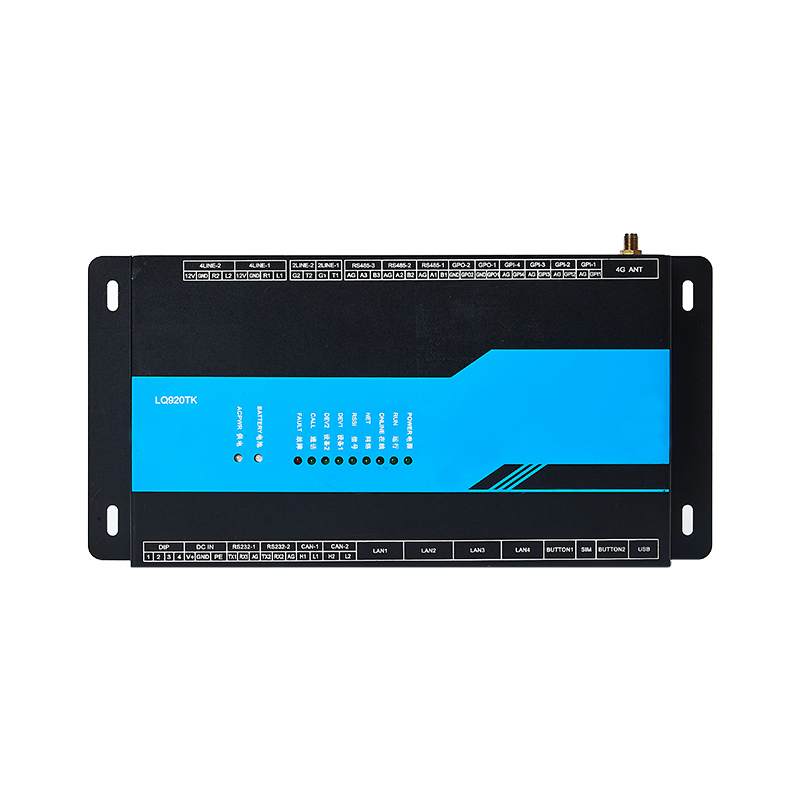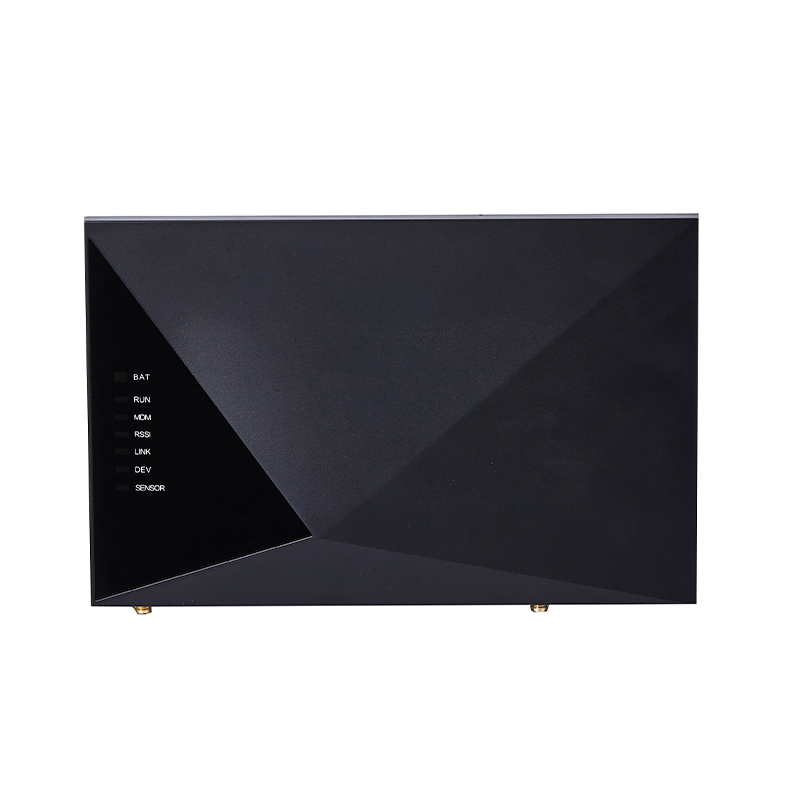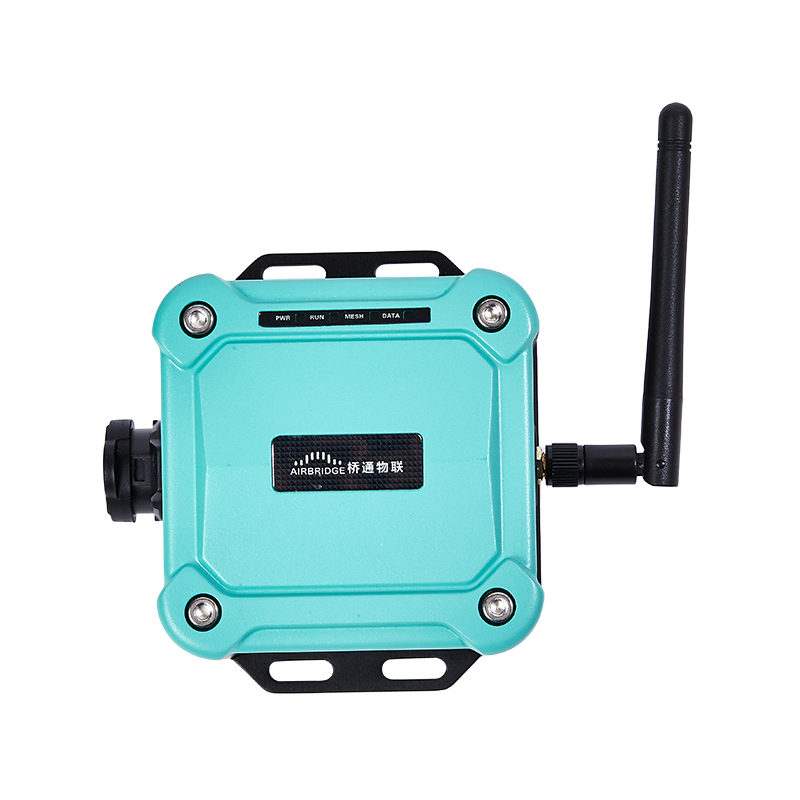How does 4G industrial router achieve efficient and stable remote connection in the era of the Internet of Things?
Release Time : 2025-04-29
With the rapid development of Internet of Things (IoT) technology, all walks of life have a growing demand for reliable and efficient network connections. Especially in industrial environments, the stability and real-time performance of data transmission are crucial. As a key hub connecting devices to the cloud, 4G industrial routers provide seamless wireless connection solutions for various application scenarios through their powerful communication capabilities and rich functional features.
First of all, the core advantage of 4G industrial routers lies in their excellent communication performance. Using advanced 4G LTE technology, these routers are able to provide high-speed data transmission rates, ensuring a smooth communication experience even under high network load. Whether it is used for remote monitoring, smart manufacturing or intelligent transportation systems, 4G industrial routers can meet the bandwidth requirements of different scenarios. For example, in smart factories, a large number of sensors and automation equipment need to continuously upload data to the cloud for analysis and processing. At this time, the high throughput and low latency characteristics of 4G industrial routers are particularly important, which can effectively avoid data loss or transmission interruption.
Secondly, 4G industrial routers have excellent stability, thanks to their multiple redundant design. In addition to supporting 4G networks, many models are equipped with dual SIM card slots, which can automatically switch to the backup network when the main network fails to ensure the continuity of the connection. In addition, some high-end products also integrate Wi-Fi modules and wired Ethernet interfaces, further enhancing the flexibility and reliability of network access. This multi-network backup mechanism not only improves the fault tolerance of the system, but also provides users with more peace of mind.
In addition, security is a highlight of 4G industrial routers. Faced with increasingly complex network security threats, modern industrial routers usually have a variety of built-in security protection measures, such as firewalls, virtual private networks (VPNs), intrusion detection systems (IDSs), etc. These features can help companies build a secure and reliable communication environment to prevent unauthorized access and data leakage. Especially for application scenarios involving sensitive information transmission, such as financial transactions, medical health, etc., the advanced encryption technology and authentication mechanism provided by 4G industrial routers can effectively protect data privacy and ensure that every communication is safe and worry-free.
It is worth mentioning that the design of 4G industrial routers fully considers the needs of industrial-grade applications. They usually use sturdy and durable shell materials, have dustproof and waterproof, shock-resistant and anti-interference characteristics, and can operate stably for a long time in harsh working environments. Whether in a high-temperature and high-humidity workshop or an outdoor base station in a remote area, these routers can adapt to various extreme conditions and show excellent environmental adaptability. At the same time, its compact appearance design is easy to install and deploy, saving space while reducing wiring complexity and maintenance costs.
From the perspective of practical application, 4g industrial router plays an important role in many fields. In smart city projects, it is widely used in data collection and transmission of facilities such as smart street lights, smart trash cans, and environmental monitoring stations; in the agricultural field, by combining with sensors, it realizes real-time monitoring of soil moisture and meteorological information, helping the development of precision agriculture; in the logistics and transportation industry, it can be used for vehicle tracking, cargo status monitoring, etc., to improve operational efficiency and service quality.
In addition, 4g industrial router also has good scalability and compatibility. Most products support standard industrial protocols such as Modbus, MQTT, etc., which are convenient for integration and docking with other devices and systems. At the same time, the open API interface allows developers to customize and develop exclusive applications according to specific needs, further expanding its functional boundaries. This high degree of flexibility makes 4G industrial router not only suitable for current business needs, but also leaves ample room for future upgrades.
Finally, with the gradual popularization of 5G technology, 4G industrial router is also constantly evolving and upgrading. Although 5G brings higher speeds and lower latency, 4G is still an economical and effective choice in many application scenarios. Many manufacturers have begun to launch next-generation products that support 5G networks, but the existing 4G industrial router still occupies an important position in the market with its mature technology and wide applicability, and will continue to serve many companies and institutions.
In short, 4G industrial router has become an indispensable key component in the era of the Internet of Things with its excellent communication performance, high security and strong adaptability. It not only solves the problem of difficult coverage of traditional wired networks, but also provides solid technical support for the digital transformation of various industries. In the future, with the introduction of more innovative functions and technological advancement, we have reason to believe that 4G industrial router will continue to lead the trend of industry development and provide users with more intelligent and convenient connection solutions. Whether it is an industrial enterprise pursuing efficient production or a service provider committed to improving service quality, they can benefit from it and jointly welcome the beautiful future of the Internet of Everything.
First of all, the core advantage of 4G industrial routers lies in their excellent communication performance. Using advanced 4G LTE technology, these routers are able to provide high-speed data transmission rates, ensuring a smooth communication experience even under high network load. Whether it is used for remote monitoring, smart manufacturing or intelligent transportation systems, 4G industrial routers can meet the bandwidth requirements of different scenarios. For example, in smart factories, a large number of sensors and automation equipment need to continuously upload data to the cloud for analysis and processing. At this time, the high throughput and low latency characteristics of 4G industrial routers are particularly important, which can effectively avoid data loss or transmission interruption.
Secondly, 4G industrial routers have excellent stability, thanks to their multiple redundant design. In addition to supporting 4G networks, many models are equipped with dual SIM card slots, which can automatically switch to the backup network when the main network fails to ensure the continuity of the connection. In addition, some high-end products also integrate Wi-Fi modules and wired Ethernet interfaces, further enhancing the flexibility and reliability of network access. This multi-network backup mechanism not only improves the fault tolerance of the system, but also provides users with more peace of mind.
In addition, security is a highlight of 4G industrial routers. Faced with increasingly complex network security threats, modern industrial routers usually have a variety of built-in security protection measures, such as firewalls, virtual private networks (VPNs), intrusion detection systems (IDSs), etc. These features can help companies build a secure and reliable communication environment to prevent unauthorized access and data leakage. Especially for application scenarios involving sensitive information transmission, such as financial transactions, medical health, etc., the advanced encryption technology and authentication mechanism provided by 4G industrial routers can effectively protect data privacy and ensure that every communication is safe and worry-free.
It is worth mentioning that the design of 4G industrial routers fully considers the needs of industrial-grade applications. They usually use sturdy and durable shell materials, have dustproof and waterproof, shock-resistant and anti-interference characteristics, and can operate stably for a long time in harsh working environments. Whether in a high-temperature and high-humidity workshop or an outdoor base station in a remote area, these routers can adapt to various extreme conditions and show excellent environmental adaptability. At the same time, its compact appearance design is easy to install and deploy, saving space while reducing wiring complexity and maintenance costs.
From the perspective of practical application, 4g industrial router plays an important role in many fields. In smart city projects, it is widely used in data collection and transmission of facilities such as smart street lights, smart trash cans, and environmental monitoring stations; in the agricultural field, by combining with sensors, it realizes real-time monitoring of soil moisture and meteorological information, helping the development of precision agriculture; in the logistics and transportation industry, it can be used for vehicle tracking, cargo status monitoring, etc., to improve operational efficiency and service quality.
In addition, 4g industrial router also has good scalability and compatibility. Most products support standard industrial protocols such as Modbus, MQTT, etc., which are convenient for integration and docking with other devices and systems. At the same time, the open API interface allows developers to customize and develop exclusive applications according to specific needs, further expanding its functional boundaries. This high degree of flexibility makes 4G industrial router not only suitable for current business needs, but also leaves ample room for future upgrades.
Finally, with the gradual popularization of 5G technology, 4G industrial router is also constantly evolving and upgrading. Although 5G brings higher speeds and lower latency, 4G is still an economical and effective choice in many application scenarios. Many manufacturers have begun to launch next-generation products that support 5G networks, but the existing 4G industrial router still occupies an important position in the market with its mature technology and wide applicability, and will continue to serve many companies and institutions.
In short, 4G industrial router has become an indispensable key component in the era of the Internet of Things with its excellent communication performance, high security and strong adaptability. It not only solves the problem of difficult coverage of traditional wired networks, but also provides solid technical support for the digital transformation of various industries. In the future, with the introduction of more innovative functions and technological advancement, we have reason to believe that 4G industrial router will continue to lead the trend of industry development and provide users with more intelligent and convenient connection solutions. Whether it is an industrial enterprise pursuing efficient production or a service provider committed to improving service quality, they can benefit from it and jointly welcome the beautiful future of the Internet of Everything.







